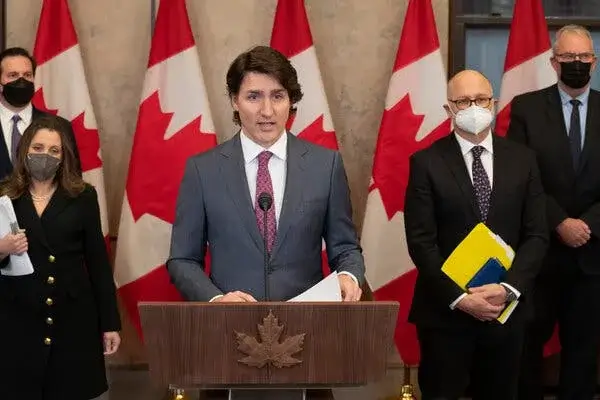Canadian Prime Minister Justin Trudeau declared a public order emergency on Monday to end trucker protests.
J. Trudeau said at a news conference that for the first time in Canadian history, he invoked emergency law to give the federal government additional temporary powers to deal with the problem. According to him, the state of emergency will operate only where necessary, and not throughout the country.
The law will be used to protect against blockades of critical infrastructure such as borders and airports. The government will allow the Royal Canadian Mounted Police to enforce municipal laws, the prime minister said, barring the use of military force.
The state of emergency also includes granting banks the power to suspend or freeze the accounts of blockade supporters without a court order and to force crowdfunding platforms and cryptocurrency exchanges to comply with anti-money laundering and counter-terrorist financing laws.
Finance Minister Chrystia Freeland said at the same briefing that the corporate accounts of companies that own trucks used for illegal blockades will be frozen and their insurance contracts suspended.
The Emergency Act, passed in the 1980s, gives Canadian authorities special powers to respond to emergencies affecting public welfare /natural disasters, disease outbreaks /and public order /civil unrest /, as well as international emergencies or war.
Canadian truckers are demanding that all Covid orders and restrictions (wax passes, masks, etc.) be lifted immediately. Due to the blockade of infrastructure, the question arose about the profitability of the smooth operation of the Canadian automotive industry. The world's largest car manufacturer Toyota Motor announced the temporary closure of three of its factories in Ontario. Ford Motor also partially suspended production.
It was previously reported that the example of Canadian truckers inspired their European counterparts to similar protests.




